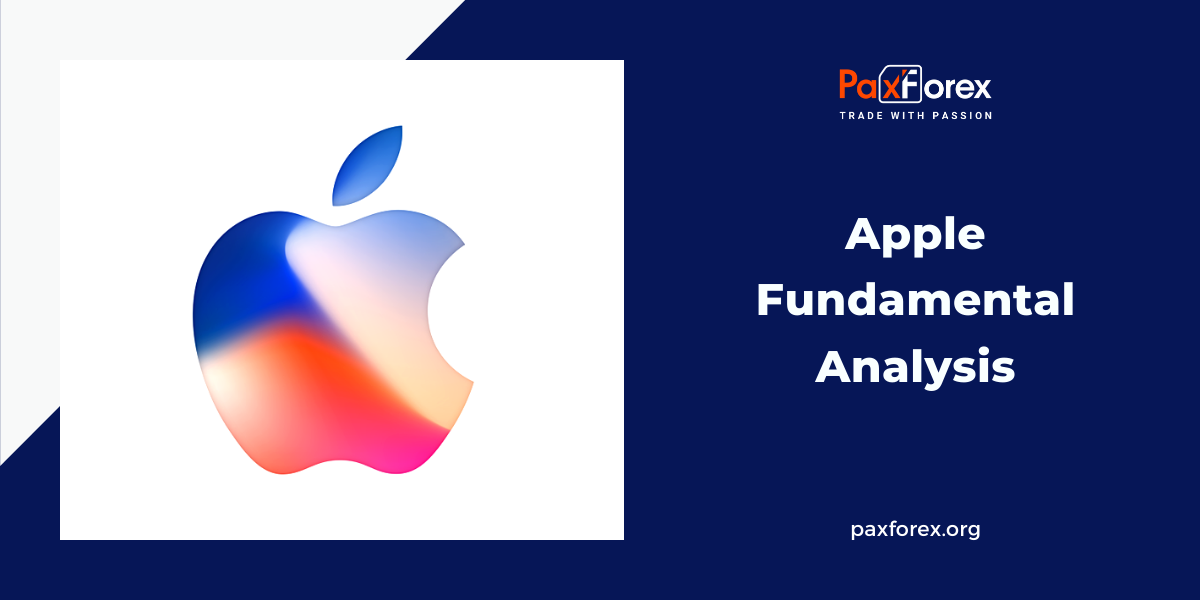
Source: PaxForex Premium Analytics Portal, Fundamental Insight
This past summer, Apple introduced what some analysts are calling its most significant innovation since the iPhone: Apple Intelligence.
At June's Worldwide Developer's Conference, Apple showcased its new artificial intelligence (AI) features, demonstrating the edge the company gains by controlling both its smartphone hardware and operating system. This control allows Apple to seamlessly integrate data and functionality across multiple apps. With Apple Intelligence, Siri will become a more powerful assistant, communication via text and images will improve, and editing photos will become easier for users.
However, when the iPhone 16 and iPhone 16 Pro hit the market last month, Apple Intelligence wasn’t fully ready to be launched to the public. Users will have to wait for iOS 18.1, which is expected to be released on October 28. While some features will be available at that time, it will still take several more months before all of the AI capabilities promised over the summer are rolled out to consumers.
Now, the question on many investors' minds is whether they should buy Apple stock ahead of the wider public unveiling of Apple Intelligence and its full range of features.
The biggest short-term impact of Apple Intelligence will likely be felt in the iPhone upgrade cycle. Only the newest iPhone 16 models, as well as the iPhone 15 Pro and Pro Max, can support these advanced AI features. This means only a small portion of the iPhones in use today are compatible with Apple Intelligence, which could encourage more users to upgrade their devices sooner than expected if the new features prove to be compelling.
Apple's upcoming fourth-quarter earnings report, set to be released on October 31, should give investors more insight into the iPhone 16's early performance. So far, the data is mixed. While iPhone 16 lead times were initially short after the launch, by the end of September, shipping times were extended - an encouraging sign for demand, according to Morgan Stanley analysts.
The gradual introduction of Apple Intelligence features in the coming months could create steady demand, increasing the likelihood that iPhone unit sales will exceed expectations over the next few quarters. Analysts already anticipate a 5% to 10% rise in unit sales, and the enhanced AI features could drive that number even higher.
Apple has already laid a strong foundation for Apple Intelligence, which could become the basis for yet another successful services revenue stream. Apple typically keeps user data stored locally on devices, but some Apple Intelligence features will need to process data via the cloud. To address privacy concerns, Apple has developed a system known as Private Cloud Compute, which allows certain processes to take place off-device while maintaining user privacy.
This setup could open new doors for developers, who may be able to create AI-powered apps using Private Cloud Compute, allowing Apple to take its standard revenue cut or charge for computing power. Additionally, it could drive the expansion of Apple's data centers.
Alternatively, Apple could choose to maintain direct control over AI features on its devices and charge users a subscription fee. Some analysts, like Edison Lee from Jefferies, believe Apple could charge around $10 per month for access to its AI services. This price point aligns with what other AI platforms, like OpenAI, charge for premium features, making it a realistic option for Apple to pursue.
While the real potential of Apple Intelligence lies in its long-term impact on Apple’s services and AI infrastructure, the short-term boost in iPhone upgrades should not be overlooked. Should Apple exceed expectations in its upcoming earnings report and deliver better-than-expected iPhone unit sales, it could provide an immediate lift to the stock.
Currently, Apple shares trade at a premium, with a price-to-earnings (P/E) ratio of 30.5 times estimated 2025 earnings. However, given Apple’s massive free cash flow, much of which is directed toward share buybacks, and the growth potential of Apple Intelligence, the stock’s premium valuation appears justified. While the release of Apple Intelligence on October 28 may not have an immediate impact on the company’s bottom line, it could be a good opportunity for investors to buy in ahead of the news, as the stock still holds significant upside potential.
As long as the price is above 220.00, follow the recommendations below:
- Time frame: D1
- Recommendation: long position
- Entry point: 230.77
- Take Profit 1: 240.00
- Take Profit 2: 250.00
Alternative scenario:
If the level of 220.00 is broken-down , follow the recommendations below:
- Time frame: D1
- Recommendation: short position
- Entry point: 220.00
- Take Profit 1: 210.00
- Take Profit 2: 200.00













